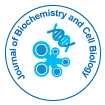开放获取期刊获得更多读者和引用
700 种期刊 和 15,000,000 名读者 每份期刊 获得 25,000 多名读者
抽象的
Differentiation of Acute Promyelocytic Leukemia Cells by All-trans Retinoic Acid and A Cyclin-Dependent Kinase Inhibitor Involves Dissociation of a CDK4/C/EBP ε Complex
Tsolkas G, Komninou D, Papanikolaou NA
Cell differentiation involves exiting the cell cycle and activating gene programs that are responsible for differentiation. The cyclin-dependent CDK4 kinase regulates the cell cycle at the G1/S stage and is an important molecule that contributes to tumorigenic mechanisms in nearly all neoplasms. CDK4 links the cell cycle to mitogenic/anti-mitogenic signals with unknown mechanisms cooperating with Cyclin D1. The cellular "decision" for differentiation or continuous proliferation occurs predominantly in the G1/S phase with mechanisms dependent on the type of cells with CDK4 kinase having a key role. We have recently demonstrated that the combination of sub-pharmaceutical doses of retinoic acid (ATPA) and CDK1/CDK2 inhibitors in acute promyelocytic leukemia (APL) cells induces degradation of CDK4 protein by simultaneously differentiating cells into granulocytes. In this paper we report that in proliferating NB4 cells, C/EBPε and CDK4 interact whereas treatment of the cells with a CDK1/CDK2 inhibitor and sub-pharmacological levels of all-trans retinoic acid leads to dissociation of the two proteins concomitantly with granulocytic differentiation of the leukemic cells. Our data suggest that CDK4/C/EBPε complexes may contribute to APL cell proliferation and that their dissociation may be required for differentiation.

 English
English  Spanish
Spanish  Russian
Russian  German
German  French
French  Japanese
Japanese  Portuguese
Portuguese  Hindi
Hindi